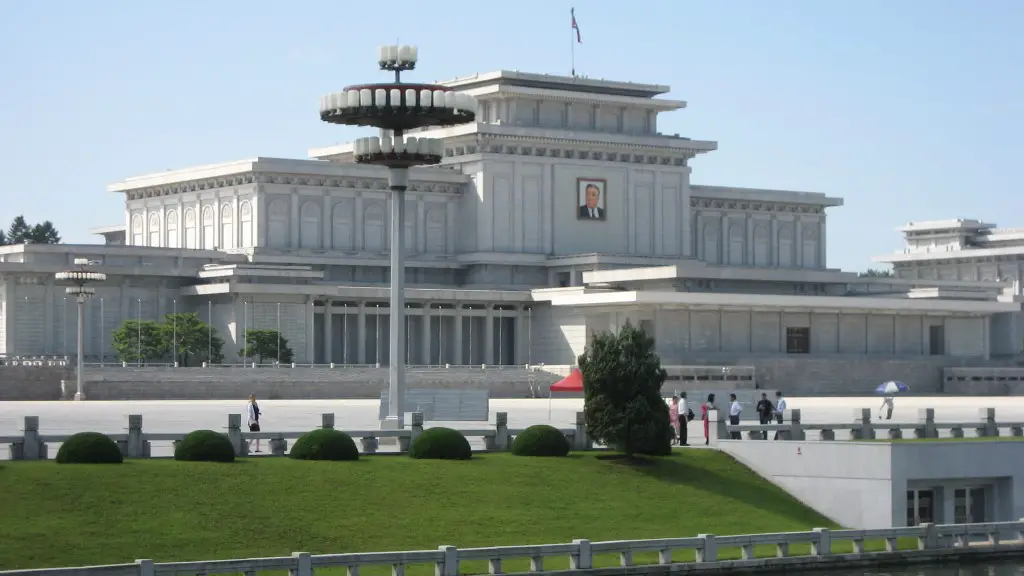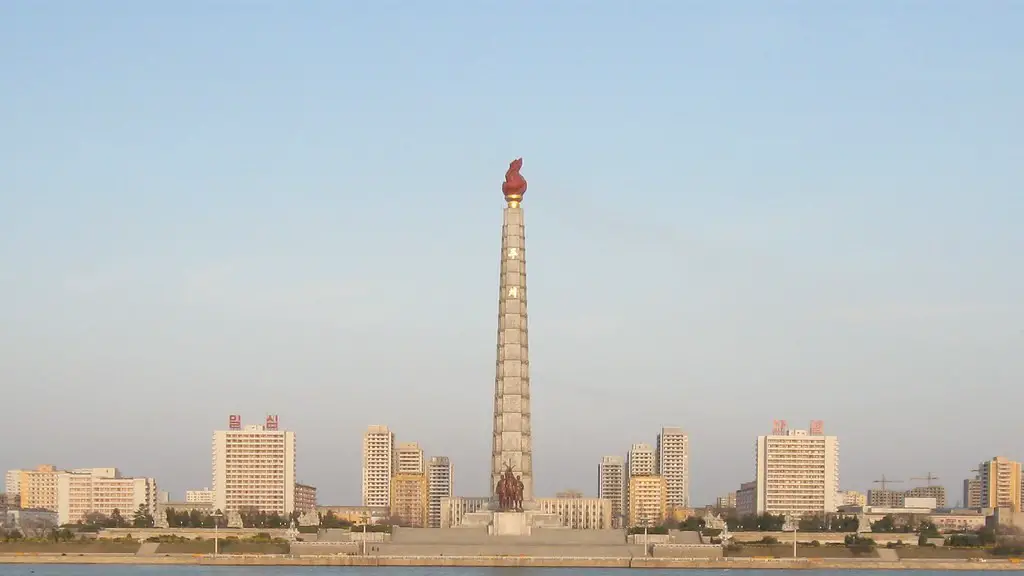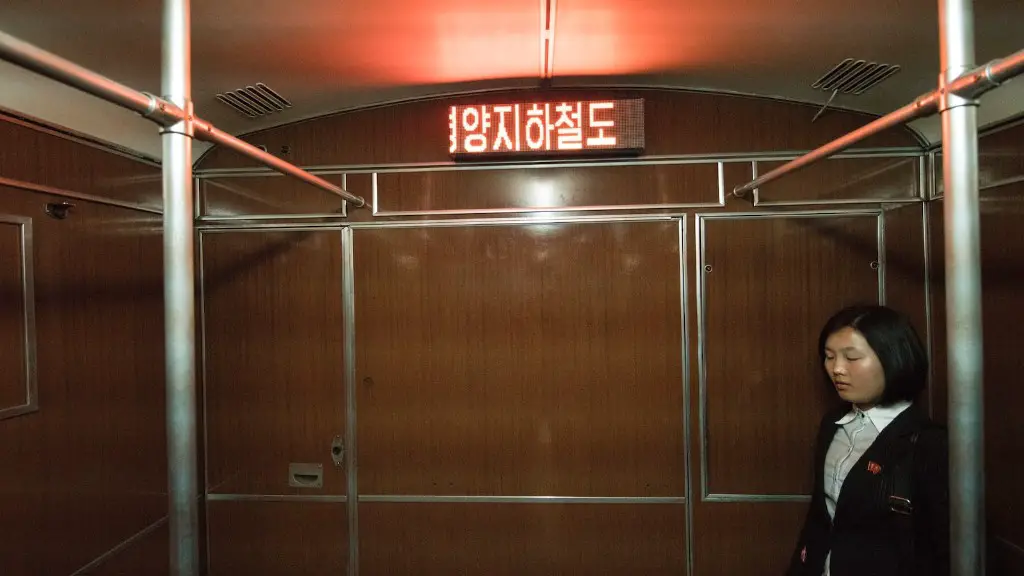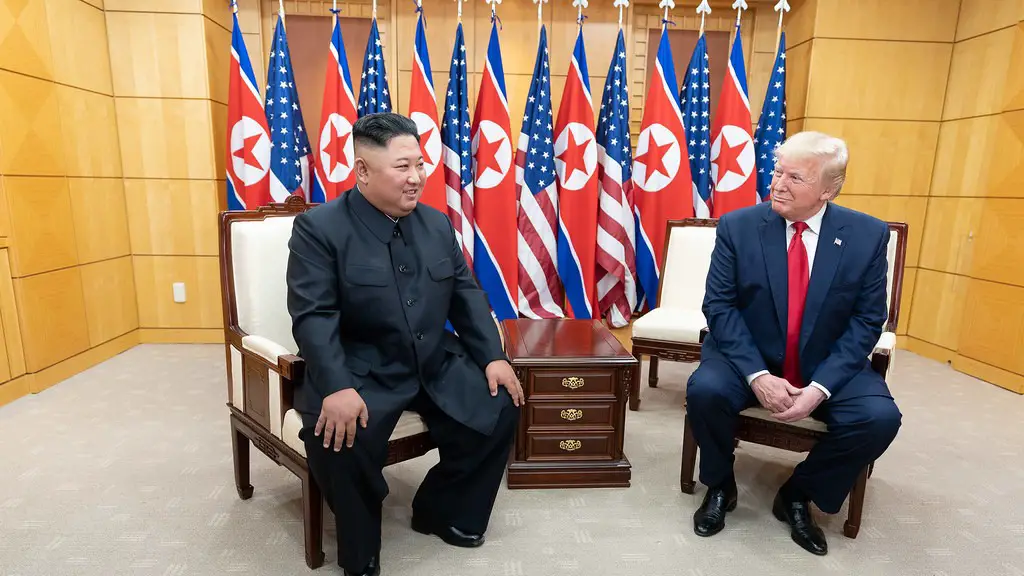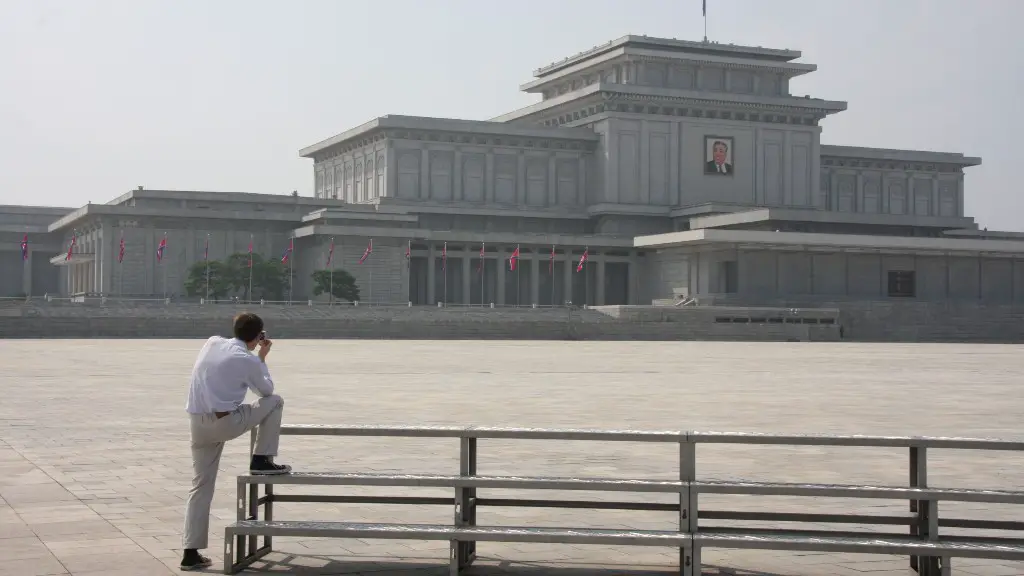Tensions between North Korea and the international community have been causing alarm for years now, and with North Korea’s ongoing nuclear and missile tests, the question of whether or not the country will launch a nuclear missile is a highly relevant and important one.
North Korea is believed to have an estimated arsenal of between 13-30 nuclear weapons, according to experts. However, the country has yet to prove that it has a deliverable system capable of carrying it over long distances. North Korea has been conducting nuclear and ballistic missile tests since 2006, but most have been restricted to shorter distances, primarily within the country.
In the case of a nuclear missile launch, the primary concern is whether North Korea will target other countries, either nearby or further afield. US Secretary of State John Kerry stated that North Korea’s leader, Kim Jong Un, has previously shown a disregard for international norms, raising serious questions about the security of the region and the world. Ultimately, if North Korea were to launch a nuclear missile, the consequences would be far-reaching.
At present, the US, South Korea and other parts of the international community have responded to North Korea’s actions with sanctions and diplomatic measures. North Korea has yet to respond positively to these measures and is believed to continue developing its nuclear capabilities and technology. This leads to further speculation about whether the country will launch a nuclear missile, which is a matter of intense concern in the region and beyond.
Experts from the international community are divided on the likelihood of North Korea launching a nuclear missile. Some believe that the country may not be quite as reckless and irresponsible as it has been in the past, and could be deterred from carrying out such an action, through diplomatic engagement and economic incentives. Others, however, are of the opinion that the country is determined to press ahead with its nuclear ambitions, increasing the risk of a nuclear missile launch.
Ultimately, the risks of a nuclear missile launch by North Korea are high, and the consequences would be devastating. In order to avert such a disaster, it is essential that the international community take more effective steps to engage North Korea and bring about lasting peace and stability in the region. Such measures include increased economic incentives, support for North Korea’s political and economic reforms, and more effective diplomatic negotiations between North Korea and other countries in the region.
US Strategy & Influence
The US has long been the most influential power in the region, often taking a lead on international response to North Korea’s nuclear and missile tests. In recent years, the US has pursued a strategy of maximum pressure and engagement, in a bid to bring the North Korean regime to the negotiating table.
However, while US policy has been successful in bringing some progress in the denuclearization talks, this progress has been limited, with solutions so far being mostly temporary or cosmetic in nature. Furthermore, some experts have argued that the US has been too focused on sanctions and other forms of pressure, at the expense of pursuing more constructive measures, such as those proposed by South Korea and Japan.
The US has also been accused of not taking North Korea’s security concerns seriously, instead opting for a more unilateral approach that does not address North Korea’s legitimate grievances. This has been seen by some as a further indication of Washington’s disregard for North Korea’s regional security concerns, which may further embolden the regime.
Ultimately, the US will need to take into account the legitimate security interests of North Korea in order to bring about a lasting peace and stability in the region. Doing so would likely require a more multilateral approach, and a greater willingness to take into account the interests of all parties involved.
China’s Role & Position
China has long been seen as a key ally of North Korea, and a strong economic partner. As such, Beijing has been influential in shaping the international response to North Korea’s nuclear and missile tests.
China has generally taken a more conciliatory approach than the US and other countries, offering economic support and diplomatic measures aimed at bringing North Korea to the negotiating table. However, in recent years, Beijing has adopted a tougher stance, with Chinese President Xi Jinping increasingly putting pressure on Pyongyang to return to the negotiating table.
At the same time, China has sought to maintain close economic ties with North Korea and has resisted calls for further economic sanctions. Beijing is believed to view further sanctions as potentially destabilizing for the region, and has thus sought to take more constructive measures to curb North Korea’s nuclear ambitions.
China’s role is thus a complex one, as it attempts to walk the line between pressure and constructive engagement. Ultimately, if it is to be successful in its efforts to bring an end to the nuclear crisis in the region, the country must lean towards the latter.
Russia’s Interests & Tactics
Russia has a strong presence in the region and considerable interests at stake in the ongoing North Korean nuclear crisis. Moscow has sought to strengthen its economic and diplomatic ties with North Korea, as a counter-balance to the US’s presence in the region. Russian diplomats have also been actively engaging in the diplomatic process, and have sought to take a more conciliatory approach than the US.
However, Russia’s role has been somewhat more complex than that of China, as Moscow has also sought to maintain strong ties with the US, South Korea and Japan, in order to protect its own interests. As such, Russia’s approach has often been more nuanced, with a focus on finding a diplomatic solution to the nuclear crisis that both serves its own interests and those of its allies.
Ultimately, Russia’s positions regarding North Korea have been more consistent and less aggressive than those of the US and other countries. While this has been welcomed by some, it has also been criticized by others, who argue that it has failed to recognize the security concerns of North Korea.
South Korea’s Role & Strategy
South Korea has been actively seeking to engage North Korea and build bridges between the two countries, in a bid to bring about a lasting peace and stability to the region. This has included attempts to open direct talks and offer economic incentives to the North Korean government, in a bid to encourage the country to return to the negotiating table.
However, South Korea’s efforts have been somewhat overshadowed by those of the US and China, and have thus far been largely unsuccessful in bringing about any meaningful progress. South Korean President Moon Jae-in has sought to take a more nuanced approach, balancing between greater engagement and tougher sanctions and diplomatic measures.
Ultimately, South Korea’s role in the North Korean nuclear crisis remains significant, and the country will continue to play an important role in bringing the situation to a peaceful resolution. To do this, South Korea must pursue a more effective strategy, one which recognizes the security concerns of North Korea, while also taking into account the interests of the US and other countries in the region.
International Community & Sanctions
The international community has responded to North Korea’s nuclear and missile tests with a range of sanctions and diplomatic measures. These have included UN Security Council resolutions, international sanctions, embargo’s and targeted measures against individuals and entities, all of which are aimed at curbing North Korea’s nuclear and missile capabilities.
While such measures have been successful to an extent in curbing North Korea’s nuclear ambitions, it is arguable that their effectiveness has been limited. North Korea has continued to press ahead with its nuclear and missile tests, and has yet to respond positively to international diplomacy and incentives. This has lead to further speculation about the country’s intentions, and whether it will ultimately resort to a nuclear missile launch.
In order to deter such an action, the international community must pursue a more coordinated approach, one which combines greater economic incentives with tougher diplomatic measures. Ultimately, a more effective and focused international strategy is needed to ensure that North Korea is held accountable for its actions and dissuaded from taking further steps towards a nuclear missile launch.
